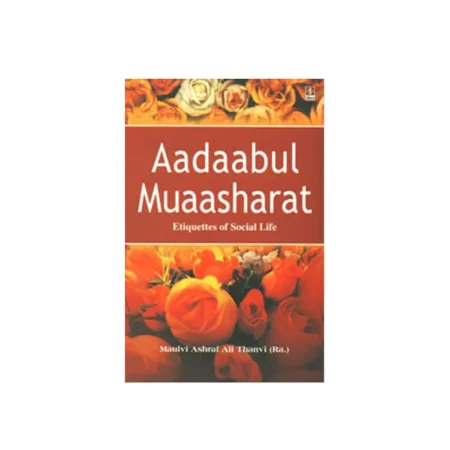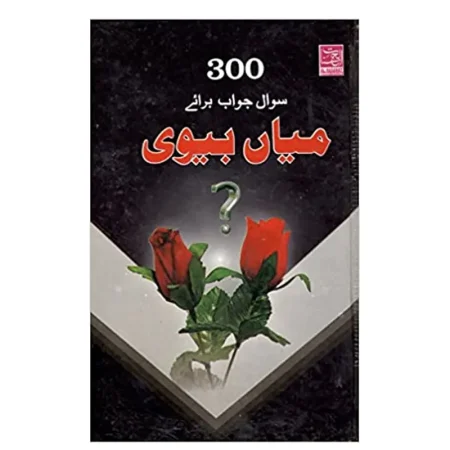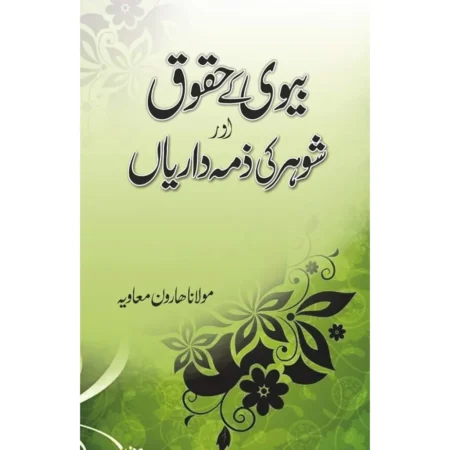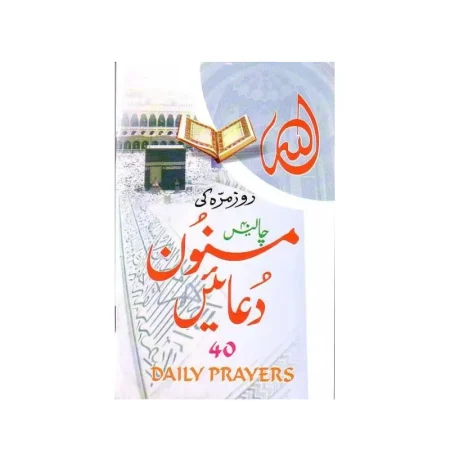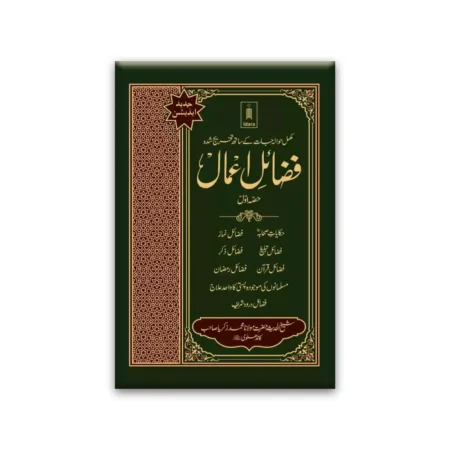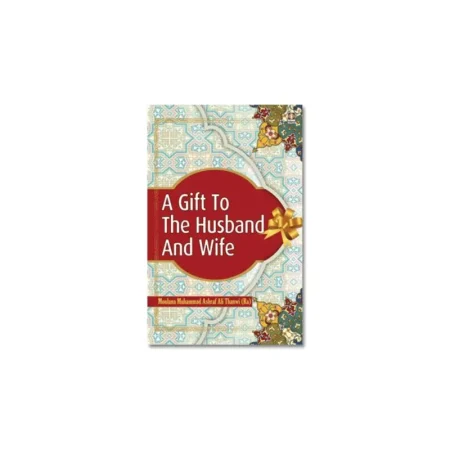Sharq Shanasi Orientalism Edward W. Saeed Al Balagh Urdu
₹600.00 Original price was: ₹600.00.₹480.00Current price is: ₹480.00.
- Name: Sharq Shanasi Orientalism
- Writer: Edward W. Saeed
- Publisher: Al Balagh
- Language: Urdu

Sharq Shanasi Orientalism Edward W. Saeed Al Balagh Urdu
₹600.00Original price was: ₹600.00.₹480.00Current price is: ₹480.00.Request a Call Back
This contact form is available only for logged in users.
- Delivery & Return
How Does The Delivery Process Work ?
- Once Our System Processes Your Order, Your Products Are Inspected Thoroughly To Ensure They Are In Perfect Condition.
- After They Pass Through The Final Round Of Quality Checks, They Are Packed And Handed Over To Our Trusted Courier Partners.
- Our Delivery Partners Then Bring The Package To You At The Earliest Possibility. In Case, They Are Unable To Reach Your Provided Address Or At A Suitable Time, They Will Contact You To Resolve The Issue.
How Are Items Packed ?
We Package Our Products In Corrugated Boxes, Which Are Covered With 3 Layer Protection. Each Individual Product Is Packed In Bubble Wrap While Fragile Items Like Bottles Are Safely Secured With Additional Bubble Wrap. We Pride Ourselves On The Quality Of Our Packaging.What Is The Range Of Locations To Which Daarul Kitab & Islamic Store Ships It’s Products ?
We Shipped Our Products Pan India!My Order Has Been Shipped, How Can I Track It ?
Once Your Order Has Been Dispatched, You Will Receive An Email And SMS With Tracking Details.You Can Track The Status Of Your Order Within 24 – 48 Hours After Your Order Is Dispatched From Our Warehouse.Following Are Some Of Our Trusted Courier Partners: eKart Logistics, BlueDart, Delhivery, Xpressbees, Ecom Express, DTDC & ShadowfaxWhat Is The Estimated Delivery Time ?
It Takes 3-7 Business Days To Deliver The Order Once Order Has Been Dispatched.Though We Keep 95% Of Our Catalog In Our Inventory, Certain Products Need To Be Sourced Directly From The Brand Itself So That We Can Live Up To Our Promise Of Providing Fresh, Non-expired Products.Are There Any Shipping Charges Applicable To My Order ?
We Have Different Shipping Charges For Different Zones Which Start From 60₹ To 100₹ Is Applied To All Orders Below ₹1999, While There Is Free Shipping For All Orders Above ₹1999Note: Please Take A Video/Photos While Opening A Order You Received We Need It If Anything Goes Wrong With You Order Between Journey Of Our Warehouse To Your Doorstep, If You Find Order Is Damaged Or Intact Please Do Not Accept The Order Delivery .
Disclaimer: Any Complaints Related To Product/Delivery Should Be Brought To Our Notice Within 48 Hours From The Time Of Delivery.
Help
Give us a shout if you have any other questions and/or concerns. Email: support@daarulkitab.com Phone: +918755553311 WhatsApp: +918755553311 - Ask a Question

Sharq Shanasi Orientalism Edward W. Saeed Al Balagh Urdu
₹600.00Original price was: ₹600.00.₹480.00Current price is: ₹480.00.Ask a Question
This contact form is available only for logged in users.
Sharq Shanasi Orientalism Edward W. Saeed Al Balagh Urdu
Overview: “Sharq Shanasi” is the Urdu translation of Edward W. Said’s seminal work “Orientalism.” Published by Al Balagh, this book critically examines the Western study of Eastern societies and cultures. Edward Said argues that the field of Orientalism has been shaped by political and ideological biases, often serving as a tool for Western domination and imperialism. The book has had a profound impact on postcolonial studies, literary criticism, and cultural studies, challenging traditional Western perspectives on the East.
Key Themes:
1. Definition of Orientalism:
- Said defines Orientalism as a Western framework for understanding and representing the Eastern world, particularly the Middle East and Asia.
- He argues that Orientalism is not just an academic discipline but a powerful discourse that shapes Western perceptions and attitudes toward the East.
2. Historical Context:
- The book traces the historical development of Orientalism from the early colonial period to the 20th century.
- Said explores how Orientalist scholarship has been intertwined with European colonial and imperial ambitions.
3. Representations of the East:
- Said analyzes various representations of the East in Western literature, art, and scholarship.
- He highlights how these representations often depict the East as exotic, backward, and uncivilized, reinforcing stereotypes and justifying Western dominance.
4. Power and Knowledge:
- One of the central themes of the book is the relationship between power and knowledge.
- Said argues that Orientalist knowledge is not objective but is produced and utilized by Western powers to maintain control over the East.
5. Critique of Orientalist Scholars:
- The book critiques the works of prominent Orientalist scholars such as Bernard Lewis, Ernest Renan, and Arthur James Balfour.
- Said highlights how their scholarship has contributed to the construction of a distorted and prejudiced image of the East.
6. Impact on Contemporary Issues:
- Said reflects on the enduring impact of Orientalism on contemporary Western attitudes towards the East, particularly in the context of geopolitics and media representation.
- The book calls for a more nuanced and respectful understanding of Eastern cultures and societies.
Purpose: The primary purpose of “Sharq Shanasi (Orientalism)” is to challenge the traditional Western perspectives on the East and to expose the political and ideological biases underlying Orientalist scholarship. Edward Said aims to promote a more balanced and respectful understanding of Eastern societies and cultures. By critically examining the field of Orientalism, the author seeks to encourage readers to question and rethink their assumptions about the East and to recognize the complexities and diversity of Eastern civilizations.
| Weight | 800 g |
|---|---|
| Dimensions | 10 × 10 × 10 cm |
Related Products
- Aadaabul Muaasharat Etiquettes Of Social Life Maulvi Ashraf Ali Thanvi Idara (English)
2 in stock
- Hardcover:?350 pages
- Publisher:?Al Hasanat Books Pvt. Ltd.; 1 edition (2015)
- Language:?Urdu
1 in stock
2 in stock
- A Politico-Cultural Study Of The Great Mughuls (1526-1707) Dr. Muhammad Qamaruddin Adam Publishers (English)
1 in stock
- Aakhri Ahd-E-Mughliya Ka Hindustan Dr Mubarak Ali Al Hasanat (Urdu)
2 in stock
- 40 Daily Prayers (Ibs) English/Arabic
1 in stock
1 in stock
10 in stock
1 in stock
- A Gift To The Husband And Wife Maulana Muhammad Ashraf Ali Thanwi Idara (English)
3 in stock
1 in stock
2 in stock



